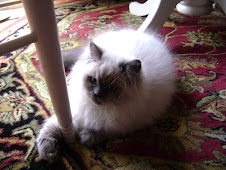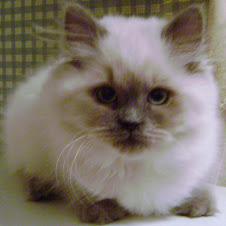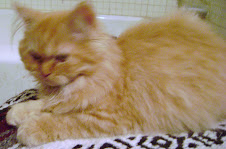


When I visited Pompeii, it was the domain of a colony of wild dogs. They were 'wild' only in the sense of being feral. They exhibited no trace of hostility but it was a very large colony and one couldn't find any area in the ruins without one or two dogs and sometimes more. I do not know if people really are divided between cat lovers and dog lovers. There are many who love both equally. I definitely find cats more to my taste and therefore was delighted to find a colony of cats inhabiting the rocky beach at Cadiz.
They may have been feral, but they definitely depended on human servants for their sustenance. Small bowls filled with food and fresh water were placed in numerous niches in the rocks, almost like offerings to household gods. It reminded me of the extraordinary position cats have occupied throughout history, often either revered as gods or messengers of the gods or feared and persecuted as agents of evil. Dogs in general have not suffered from the same bias, although their Wolf cousins have attracted strong prejudice and the same kind of powerful mystique as cats.
Many animal lovers sense a relationship of some kind between their animals and the Divine. A close friend of mine confessed once that he believed one of his cats actually communicated with the otherworld regularly and referred to him as his Shaman. I have felt the same on occasion. How often has a cat's attention been held by something invisible to its owner? Even their ability to invent games using the unlikeliest objects sets them apart from the ordinary. A cat never loses the ability to experience childlike wonder and excitement. In many ancient cultures, gods were depicted as having the same ability.
For the most part, the natives of Cadiz probably leave food and water for the wild cats of the beach simply out of kindness but I would imagine there may be an old tradition somewhere linking good fortune to their presence at the shore...




No comments:
Post a Comment